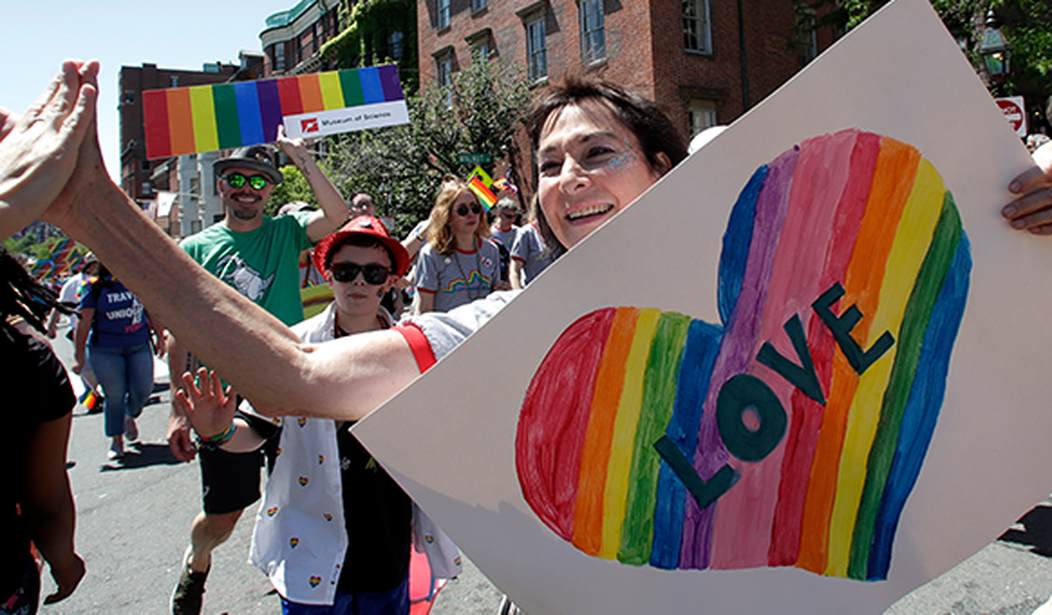We used to be family friends with an elderly gay couple. One of the men in the relationship was a colleague of my Dad: They were doctors at the same hospital. We got to know the “happy” couple.
Both gentlemen were very kind.
I don’t think they ever explicitly “came out” of the closet — or anywhere else. Instead, it was the sort of thing where it wasn’t necessary: They were “roommates” who lived together, traveled together, and celebrated life’s milestones together for half a century.
But everyone knew.
Interestingly, the non-doctor in their relationship had served under General Patton in World War II. (In a high-ranking secretarial role, I believe.) At a military gathering in the 1980s, my Dad spoke to a World War II veteran who had also served under Patton. The topic of their mutual friend’s sexuality was raised.
“I mean, obviously, we all realized he was gay,” explained the military buddy. “But he was such a nice guy, nobody really thought about it. He did his job, and he did it very well. Never caused any problems. We had more important things to worry about.”
Both men have since passed away. They’re buried together in a Virginia cemetery, side-by-side for eternity.
Of all the social changes in the last 50 years, the public acceptance of homosexual relationships has probably been the most significant. What was once taboo has gone mainstream; the “gay lifestyle” has been relentlessly glamorized ad nauseum by Hollywood influencers since the disco days of the 1970s. It’s celebrated in film, song, and print!
Eventually, it was gonna change the culture.
Until 2008, most Americans still opposed same-sex marriages. But between 1988 and 2009, something curious happened: Support for same-sex marriages grew by 1% to 1.5% each year, and then jumped by 4% per year in 2009.
Support for same-sex marriages hit 70% in 2021 and has hovered around there ever since.
Most Republicans still oppose it. Only 46% of Republicans think gay marriage should be legal; just 40% believe same-sex relationships are morally acceptable.
It’s interesting that more Republicans think same-sex marriage should be legal than believe it’s moral. That’s probably due to two factors: First, perhaps it indicates discomfort with the government’s (murky) role in legislating marriages. But more than anything else, it’s probably an acknowledgement of so many other social changes: If we wanna win elections, attacking same-sex marriages isn’t the smartest hill to die on.
Additionally — all throughout our heartland — there have been many conservative households that were rocked by a loved one coming out. Maybe it was a son. Or a daughter. Or a sibling, cousin, aunt, or uncle.
What do you do?
For all the talk of “hating the sin but loving the sinner,” life is messy and complicated. There are no easy answers. Sometimes, the people we love the most are lost in the wilderness: They’ve chosen a path that will lead to heartache and devastation, but it’s their choice, and you’re powerless to stop them.
That’s when you’re faced with a Faustian bargain: Do you take an uncompromising stand, because right and wrong are absolutes? Morality matters. Right and wrong matter.
But the cost is, you could lose them forever.
The other option is to do whatever you can to stay in their lives and leave a “trail of hope” in the wilderness — and pray that one day, perhaps years from now, they’ll choose salvation.
And just maybe, they’ll follow the path and come back home.
What’s moral isn’t always pragmatic. And what’s pragmatic isn’t always moral. Furthermore, there are no guarantees in life. You could blaze a trail in the wilderness, keeping it clear and maintained for decades — but if your loved one chooses a different path, there’s absolutely nothing you can do. Your trail will remain empty and barren.
That’s the responsibility — and the horror — of free will.
And the agony of life.










